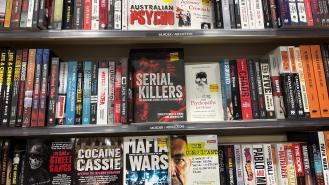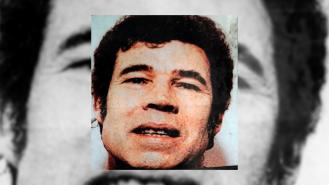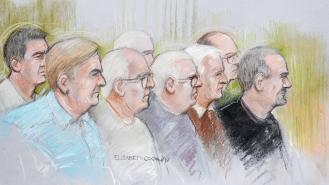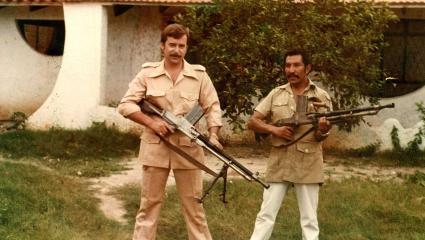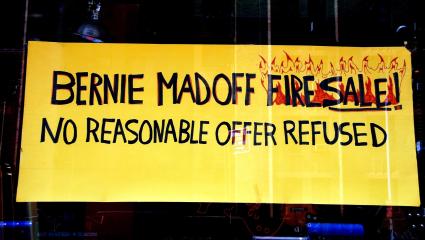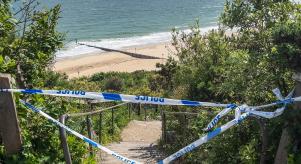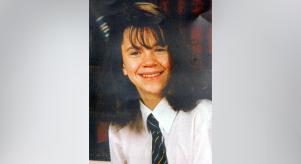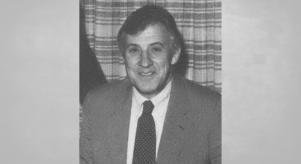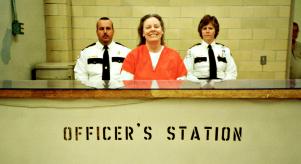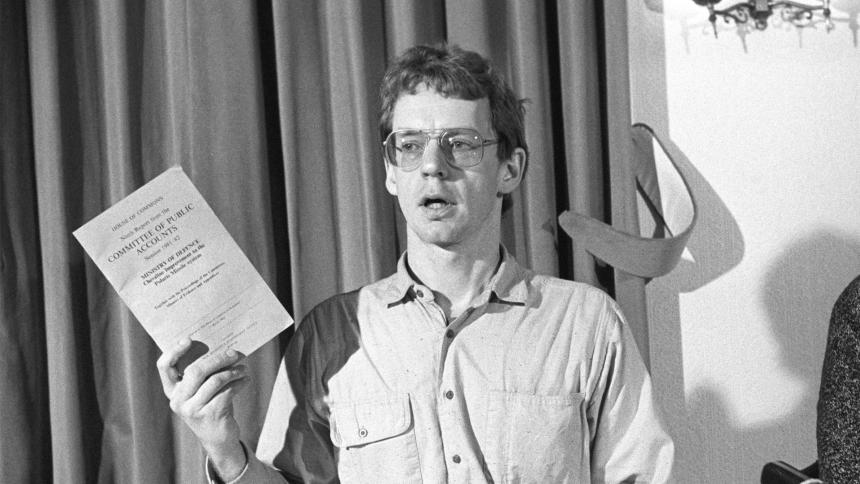
6 cases that defined Duncan Campbell’s career
Duncan Campbell didn’t need a podcast or a camera crew to make crime reporting gripping. He did it with little more than a pen, patience and an eye for injustice. Good old-fashioned investigative journalism, if you will. Something we appreciate here at Crime+Investigation.
What set him apart from other crime journalists? Campbell did his research. He didn’t just show up at trials and report from the courtroom. He knew the criminals, drank with the coppers and earned the trust of lawyers. Remembered as a charismatic man (often wearing his signature uniform of a battered leather jacket and skinny black jeans) he was sharp, scrupulous and instantly likeable.
Here are the cases that shaped his career.
1. ABC official secrets trial (1977-78)
In many ways this was Campbell’s first real taste of crime journalism. It unfolded a few years into his stint as news editor of London-based magazine Time Out and saw a former soldier and two journalists trialled for offences under the Official Secrets Act 1911.
Campbell left Time Out on bad terms (he resigned in 1981 in protest against the owner’s decision to abandon its equal pay policy) but had fond memories of his time at the magazine.
'We never knew when there’d be a raid. One colleague interviewed an IRA member and was arrested under the Prevention of Terrorism Act.'
2. The ‘Torso Murder’ trial
Campbell’s first real baptism into the world of long-form crime reporting came in the 1970s, with what became known as the Torso Murder trial.
Reg Dudley and Bob Maynard stood accused of killing two fellow criminals, Micky Cornwall (nicknamed the Laughing Bankrobber) and Billy Moseley. One of the bodies was cut up and dumped in the Thames.
Campbell said it was the kind of case that had everything: underworld grudges, colourful nicknames, suspect police practices, and an Old Bailey courtroom drama that stretched on for six months, complete with a conflicted jury.
'Hanging around the Old Bailey, gradually getting to know the participants from both sides of the fence – and the people who wrote about them – was an apprenticeship,' recalls Campbell.
3. The classmate who never came home
Sometimes the story hits closer to home. In 1989, Murray Erskine, a former classmate of Campbell’s, vanished. An opera-loving analyst at the Bank of England, Murray had seemed an unlikely candidate for foul play. But months later, his body was found in the River Cam.
There were theories (including that he’d stumbled across a drug money laundering operation through his work) but police concluded that the most likely scenario was a deadly encounter arranged through a gay contact magazine. Despite police identifying a suspect, the case went cold.
4. The horror of Cromwell Street
Of all the trials Campbell has covered, none haunted him more than that of Rosemary West. In 1995, the Winchester courtroom (and the press pack that descended upon it) was consumed by horrific accounts of rape, torture and murder at 25 Cromwell Street.
Campbell was the journalist selected to accompany the jury through the so-called ‘House of Horrors’ where Rosemary and Fred West established themselves as two of Britain’s worst serial killers.
With hard hats on and notebooks banned, they walked through the tiny rooms where the Wests had committed atrocities. Even for seasoned crime reporters like Campbell, the psychological toll was evident. Counselling was offered to the jury, witnesses and journalists too.
5. The 'Diamond Wheezers' of Hatton Garden
Not all crimes are grim. Some are, well, just plain audacious. In 2016, Campbell sat in on the sentencing of the so-called 'Diamond Wheezers', a crew of ageing burglars who drilled into London’s Hatton Garden Safe Deposit over the Easter weekend and made off with millions in cash, jewellery, gold and of course, diamonds. Campbell penned a fantastic long-form piece on the Hatton Garden heist, infused with his signature humour.
6. Taking the stand himself
Crime reporters are usually on the outside looking in. But in the 1990s, Campbell found himself in the witness box. He had reported on alleged corruption within the Stoke Newington police and several officers (who were never named) sued The Guardian for libel. The case went to trial and while the judge appeared sympathetic to the plaintiffs, the jury ruled in The Guardian’s favour.
'It was a relief and a lesson: giving evidence, something I have watched thousands of people do, is not as simple as it looks,' wrote Campbell when reflecting on his experience.
A voice we’ll miss
Duncan Campbell sadly passed away on 16th May 2025, and even at 80, he was still chasing leads. Without a doubt, he helped shape how journalists cover crime in Britain and how the nation talks about it.
Want more like this? Subscribe to the Crime+Investigation newsletter for more bios, up-to-the-minute crime stories, new release shows and more.

